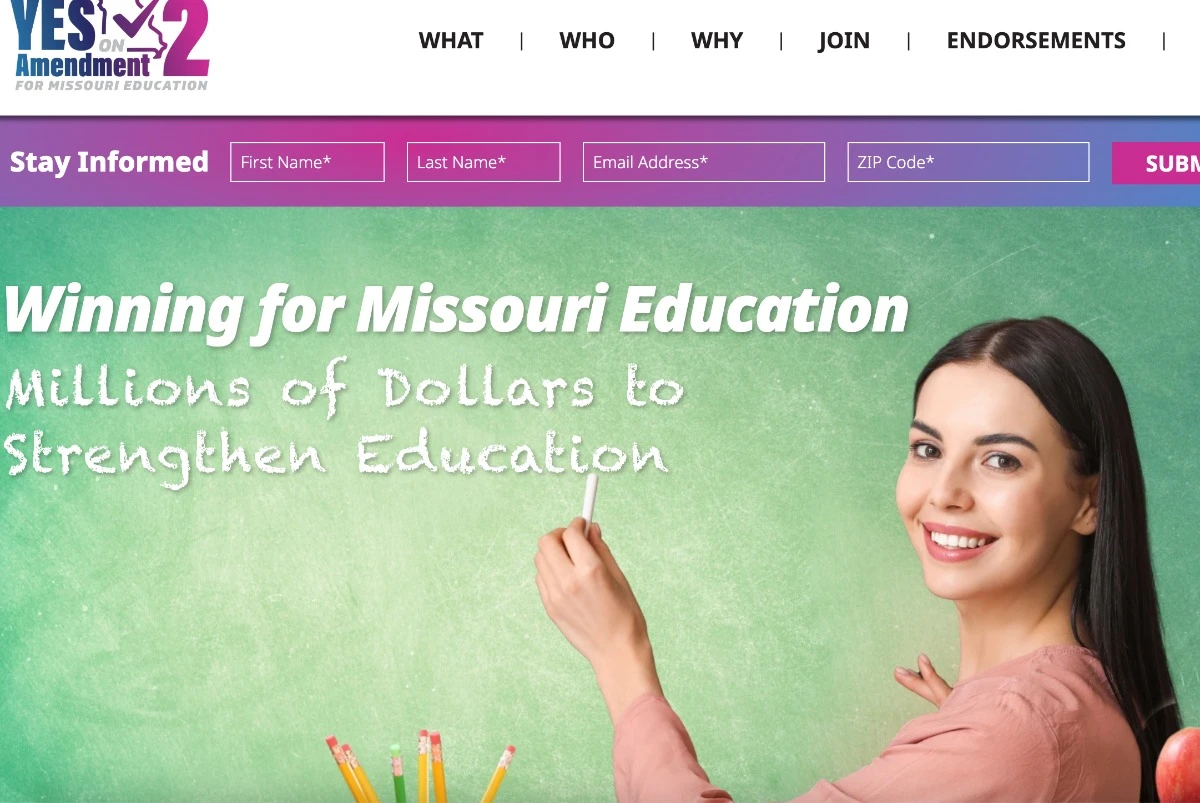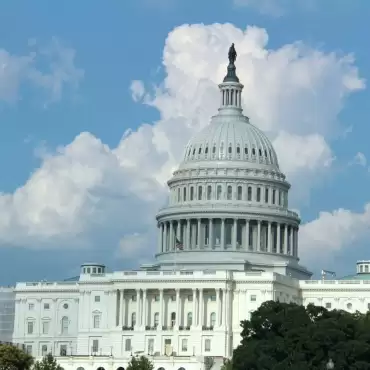Just as proponents of the Missouri legal sports betting initiative are beefing up television airtime, opponents are pulling back to focus on "grassroots" efforts and calling proponents' promise of $100m for education "dishonest".
The initiative, Amendment 2, will go before the voters on the US presidential election ballot on 5 November. Proponents DraftKings and FanDuel have funded the richest campaign in Missouri history, according to the Missouri Independent. The two companies have funded ‘Winning for Missouri Education’ with more than $35m (£27m/€32.4m). DraftKings contributed another $4.6m on 17 October.
Caesars, the only operator to fund the opposition campaign ‘Missourians Against the Deceptive Online Gambling Amendment’, has contributed more than $14m. Combined, both sides have contributed a record sum of nearly $50m. And that’s for an initiative that is on the same ballot as an abortion initiative.
Brooke Foster, spokesperson for the opposition campaign, told ‘Politically Speaking Hour on St Louis on the Air’ that proponents are “making promises for Missouri education. They’re promising to fund in the millions of dollars and even the auditor’s own fiscal note shows that just isn’t true.”
Legal wagering supporters are promising $100m for education over five years. According to the ballot text, tax revenue could be anywhere from $0-$28.9m annually, because the state would allow sportsbooks to deduct promotional credits. Those deductions lower taxable revenue.
Proposal: 10% tax, promo deductions allowed
The legalisation campaign “increased the size of some of its television purchases and has begun emphasising support for the measure from professional sports teams,” wrote the Independent. Caesars and its opposition campaign pulled more than $1m worth of television ads last week.
“While the out-of-state online gambling corporations continue to throw millions of dollars at misleading TV ads, we have decided to focus our efforts on grassroots outreach and community conversations during the two and a weeks that remain before election day,” Foster told the Independent via email.
Sportsbooks would be taxed at 10% of adjusted gross revenue. In Maryland, which also has a population of 6.2 million, sportsbook operators had paid the state $107.9m between launch in December 2021 and the end of September. The state charges sportsbooks a 15% tax. Maryland currently allows operators to deduct 100% of promotions in the first year and then steps the write-off down. But a new regulation in the making will eliminate promotional deductions altogether.
Initiative born after legislative fail
In Missouri, residents are seeing television advertisements and mailers, although Kansas City residents say they aren’t seeing much. Most are focused in the eastern start of the state, more specifically around St Louis. Major League Baseball’s St Louis Cardinals initially took the lead on the ballot initiative. Chairman and CEO Bill DeWitt III led a consortium of the state’s professional sports teams to file the measure, after repeated efforts in the state legislature failed.
“We are not optimistic that this pattern will change during the upcoming legislative session,” he said when announcing the proposal in January. “We are currently proceeding with an initiative petition campaign to put the issue of legalised sports wagering on the ballot for Missouri voters in 2024.”
The NFL Kansas City Chiefs, MLB Kansas City Royals, NHL St Louis Blues, Major League Soccer St Louis City SC and the National Women’s Soccer League Kansas City Current support the initiative.
Mark Donovan credited St. Louis Cardinals chairman Bill DeWitt for spearheading sports wagering legislation in Missouri. Donovan said he has spent more time in Jefferson City on sports betting than any other issue. Says club will support voter initiative if on November ballot.
— Matt Derrick (@mattderrick) July 19, 2024
Ads in support are “disingenuous”
The initiative also has the support of DraftKings and FanDuel, the two biggest wagering operators by market share in the US. It’s pitting the platforms against the state’s casino companies, which would get fewer online skins, or platforms, under the initiative than in previous proposals.
Caesars and Penn Entertainment each own three brick-and-mortar casinos in Missouri. Boyd Gaming owns two. Each would be entitled to one skin per company, rather than one skin per location as in previously considered legislation. But so far, Penn and Boyd have elected to stay on the sideline while Caesars campaigns against the initiative.
“I would have a lot more respect for the opposition’s argument if they just said: ‘You know what? We want to expand sports gambling in Missouri. Other states have it. Why don’t we?'” Foster told St Louis Public Radio last week. “It’s the fact that they’re tying it to education funding. Putting out advertisements with teachers and classrooms. As a parent with students in Missouri public schools, it just rings disingenuous to me.”
Both of Missouri’s gubernatorial candidates say they support the idea of legalisation.
Missourians will also get to vote on casino
An initiative to add another land-based casino at the Lake of the Ozarks is also on the ballot. Under Missouri law, casinos are only allowed on the Mississippi and Missouri rivers, but Amendment 5 would allow for one more on the Osage River. That would bring the number of brick-and-mortar casinos in the state from 13 to 14.
Bally’s, which operates a casino in Kansas City, has already put in a bid for a Lake of the Ozarks project. Should the initiative pass, the licence would be made available for other bidders as well.




